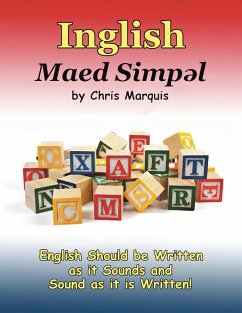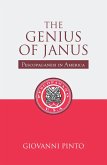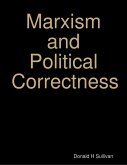Quite simply, English should be Written as it Sounds, and Spoken as it is Written. Inglish Maed Simpl shows exactly how this can be done! Followed carefully, this text will enable publishers everywhere to transliterate the English language into an identically sounding language that is written as it is pronounced and pronounced as it is written. Read these 50 pages and you can do it yourself! For hundreds of years now, there has been a desire to sort out the spelling of the English language. William Caxton brought the printing press to London in 1476, at which time spelling became important, but was poorly served by foreign ideas and poorly translated English bibles in the following century. (page 17) In Old English, around 900 AD, these two 'th' sounds correctly had different symbols: Þ as thorn for three/phree, maths/maphz, or thing/phing; and ð as edh or eth. Thorn was written like 'b' on top of 'p'; we keep the 'p' and write it 'ph' (phee). Eth was a circle with a wind blown cross on top, recently revived by the International Phonetic Alphabet; we will stay with the 'th' (th) for rather/râther, other/uther, or then. (page 9) In these fact-filled pages, readers discover how the English language will be written in the very near future! At first it may be more popular with those learning English as a Second Language (ESL). But soon the benefits to everyone will become obvious! Babies born after the new text becomes commonplace, will learn sooner and advance further. After seeing how much faster their child learns to read, write and pronounce English, the parent's pride in their son or daughter will soon outshine a more fragile pride in a knowledge of English spelling, based more on memory than logic. "Typesetters, paid by the word, developed an understandable taste for long words." Correctly spelling words according to their pronunciation, followed by very simple unwavering rules, is a first step to slow down or arrest the tendency for the language to lose its variety and clarity of sounds. (page 16)
Dieser Download kann aus rechtlichen Gründen nur mit Rechnungsadresse in A, D ausgeliefert werden.









